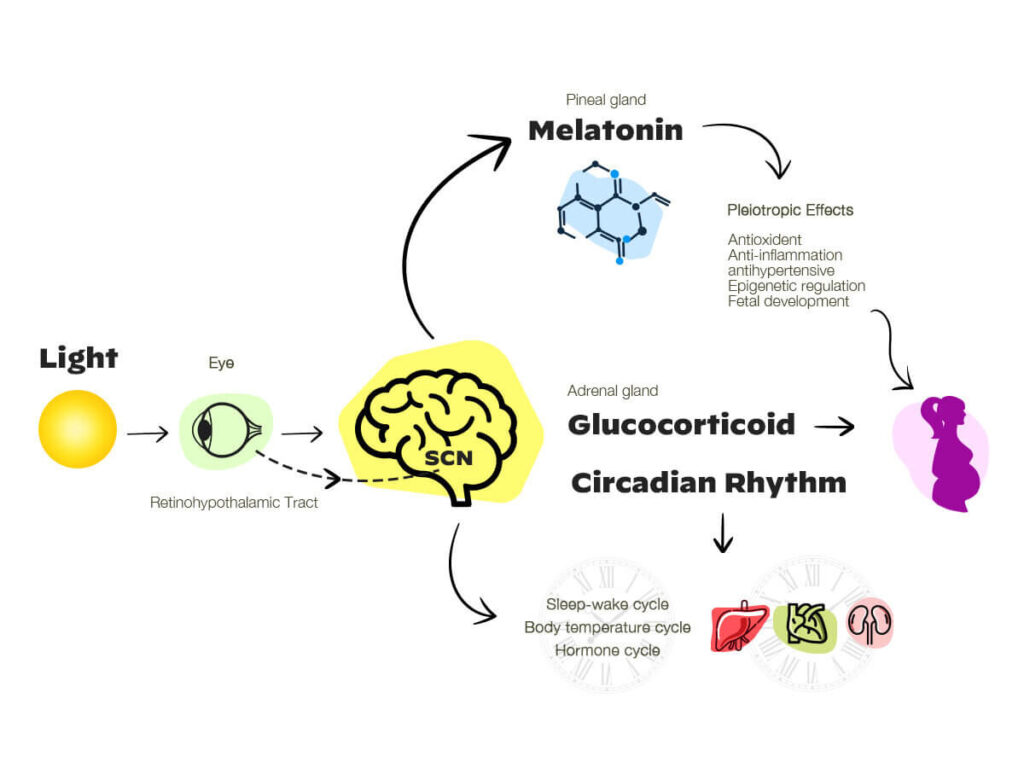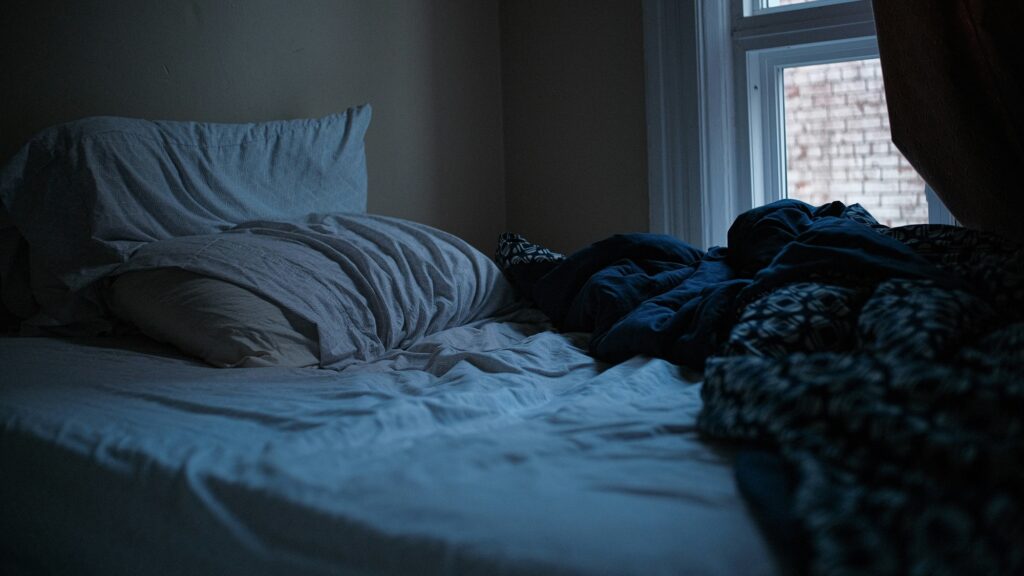We’ve all had days when we’ve woken up after a night of inadequate sleep. There are numerous physiological processes that happen when we’re asleep.
Not getting enough shut-eye can lead to various disruptions in these biochemical processes in our body. Let’s start with understanding what sleep is

Highlights
- Circadian rhythmicity of sleep onset is secured through the master pacemaker located in the hypothalamic suprachiasmatic nucleus (SCN),
- Sleep duration also affects the response of hormones associated with appetite Leptin (subsides hunger) and Ghrelin (stimulates hunger),
- Going to bed at the same time each night and getting up at the same time each morning, including on weekends.
What exactly is sleep?
Sleep is a state of reduced consciousness, muscle relaxation and altered responsiveness to stimuli, which is an actively regulated, periodically occurring phenomenon in organisms.
Based on the patterns of brain electrical activity, eye movements and skeletal muscle tone, sleep is separated into distinct stages in humans: non-rapid eye movement (NREM) sleep, also referred to as slow-wave sleep), and rapid eye movement (REM) sleep.
How is sleep controlled?
Sleep onset and periodicity are controlled processes determined by three major factors:
1. Circadian rhythms (Internal process regulating sleep-wake cycles)
2.Homeostatic drive (Pressure to sleep the more time we spend awake)
3. Emotional/Cognitive inputs
Circadian rhythmicity of sleep onset is secured through the master pacemaker located in the hypothalamic suprachiasmatic nucleus (SCN).
These have projections into various regions in the brain participating in the regulation of sleep timing, behavioural and endocrine processes, food intake, physical activity, and substrate metabolism. It essentially is your body’s master clock.
What happens if you don’t get enough sleep?
When you don’t get enough sleep, together with misaligned or irregular sleep, a number of anomalies can present themselves that can directly or indirectly affect your metabolism.
This happens because your circadian rhythm is disrupted. This circadian clock goes on regardless of your activity levels, and ideally, it must be aligned with the day-to-day work: rest periods for healthy functioning.

How are sleep and glucose metabolism-related?
Sleep and glucose metabolism are closely related to each other. For starters, low sleep levels can lead to increased circulating cortisol (a stress hormone) which results in gluconeogenesis (production of glucose from non-carbohydrate sources) which in turn affects glucose regulation.
A study shows that 6 days of sleep restriction has been associated with an increase in evening cortisol levels and nighttime growth hormone concentration, which induces a rapid decrease in muscular glucose uptake
Both these factors can also result in reduced insulin sensitivity due to spikes in blood glucose levels.
Sleep duration also affects the response of hormones associated with appetite Leptin (subsides hunger) and Ghrelin (stimulates hunger).
Insufficient sleep tends to offset the difference between the two hormones, potentially resulting in several metabolic irregularities, leading to changes in food intake and causing issues like diabetes and metabolic syndrome.
Tips to get enough sleep
According to the Centers for Disease Control and Prevention, good sleep habits, sometimes also known as sleep hygiene, can help you get sufficient sleep, both in terms of quantity and quality.
Some habits that can improve your sleep health:
- Consistency: Going to bed at the same time each night and getting up at the same time each morning, including on weekends
- Bedroom environment: Keeping your bedroom quiet, dark, relaxing, and at a comfortable temperature
- Electronic devices: Removing any electronic devices, such as TVs, computers, and smartphones, from the bedroom, especially around bedtime
- Food: Avoiding large meals, coffee or caffeinated beverages, and alcohol before bedtime
- Exercise: Getting some exercise. Being physically active during the day can help you fall asleep more easily at night.
Conclusion
In order for physiological systems to function appropriately, your nutritional and physical aspects of healthy living must be combined with a sleep cycle that can support it.
Not getting enough sleep can disrupt the various important biochemical processes in your body. This further emphasises sleep as a key marker for your recovery and overall healthy functioning of your body.
Disclaimer: The contents of this article are for general information and educational purposes only. It neither provides any medical advice nor intends to substitute professional medical opinion on the treatment, diagnosis, prevention or alleviation of any disease, disorder or disability. Always consult with your doctor or qualified healthcare professional about your health condition and/or concerns and before undertaking a new health care regimen including making any dietary or lifestyle changes.
Reference
- Light and circadian signaling pathway in pregnancy: Programming of adult health and disease.
- An adenosine-mediated glial-neuronal circuit for homeostatic sleep
- Prolonged sleep restriction affects glucose metabolism in healthy young men
- Sleep restriction for 1 week reduces insulin sensitivity in healthy men.
- Adverse metabolic consequences in humans of prolonged sleep restriction combined with circadian disruption.








